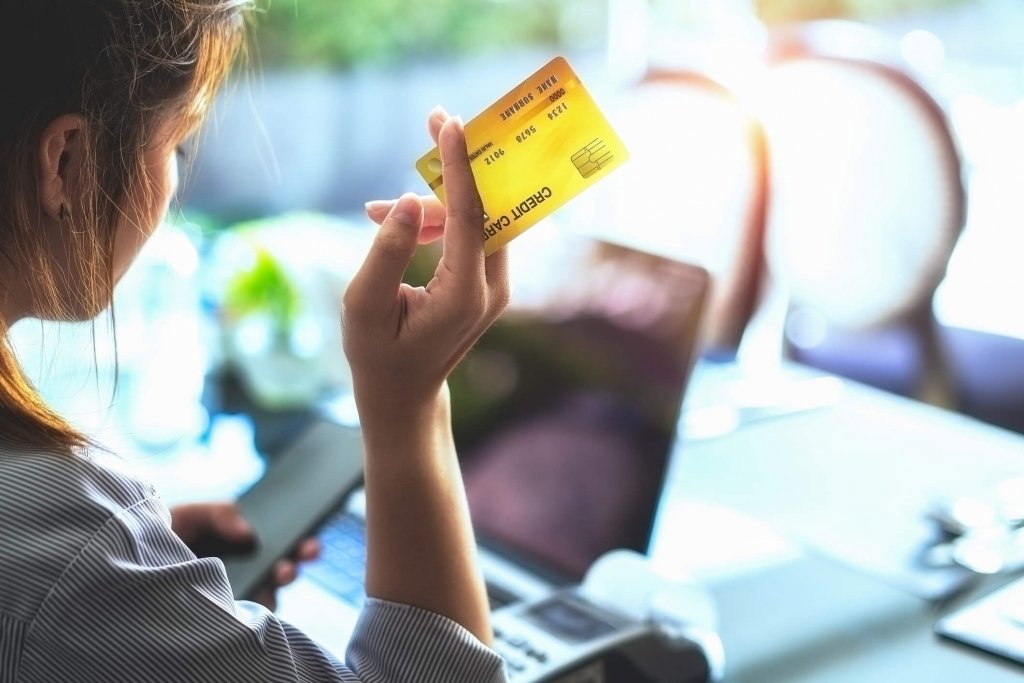
All Posts
It happens. We all have times when we need extra help to pay for things.
Check your mailbox, and chances are you’ll find at least one credit card offer tempting you with limited-time low or 0% interest and glamorous bonus point rewards.
Then again, you could also take advantage of a personal loan to give you a quick lump sum payment to help you out of a jam, purchase something you need, or take a vacation.
Should you use a personal loan or credit card to help with temporary money needs? Each one has unique features that suit different financial needs. Read on for some information that may help you make an informed decision about what’s best for you and your unique situation.
When you are approved for a personal loan, you will be given a lump sum, generally anywhere from $600 to $25,000, that is to be repaid over a certain number of installment payments While some lenders have a few restrictions on how the funds may be used, you typically have the ability to decide how to spend the money. Additionally, when you sign your loan agreement, you agree to a fixed payment and payment schedule that you will pay each month until the total loan and interest amount are paid in full.
A personal loan can be a good option for big-ticket items such as furniture, appliances, car repairs, vacations, weddings, or funerals. One benefit to a personal loan is having the full amount of your loan upfront. This allows you to control how and when it is spent. You can also see clearly how much of your loan proceeds have has been spent and how much remains.
Another feature of a personal loan is that there is not a credit limit that can be automatically increased, so you less likely to let your spending get out of control. Lastly, once your loan is paid off, it may be easier to obtain a new loan if another unexpected event occurs.
As with many things in life, the benefits of personal loans can also have drawbacks depending on your situation.

A credit card is a revolving form of credit. Rather than receiving a lump sum payment upfront, you can charge up to a certain limit on the credit card based on your credit history. While minimum monthly payment amounts vary depending on the credit card issuer, the typical payment that is usually about 2% of your outstanding balance.
A general rule of thumb is that credit cards are great for short-term financing, as long as you pay the full amount off each month. It can be looked upon as a good way to acquire points to enjoy for extra offers, and it can also be a way to keep track of your expenses each month.
However, if you aren’t keeping track of your card use, you could be in for a big surprise when your bill shows up.
If you don’t pay off your credit card balance in full, your outstanding balance can start to add up due to interest being added back to your bill. Additionally, if minimum payments are missed, late fees can be added on, in addition to the added interest.
In short, credit cards may be a very expensive form of financing if you don’t pay off the balance each month. Unless you’re taking advantage of promotional offers, they usually carry double-digit interest rates.
Those bright and shiny new credit cards can seem like a quick and easy solution for payment needs, but it’s important to consider how their use can lead to unexpected costs.
Most people who secure a loan have every intention of making the payments on time and paying off the full amount on schedule. However, personal situations and emergencies can arise, such as the loss of a job or medical expenses that make timely payments difficult or impossible.
If you fall into trouble, the first step to take is to call your loan company and let them know your situation. Don’t let the payment due date pass by or ignore the payment. Most lending companies are willing to work with you to find a solution as long as they are aware of your situation.
Miss a payment by 30 days, and you may receive a late fee, although some lenders will give you a grace period. Longer than 30 days can affect your credit score. Longer than 90 days could lead to the company suing for your payment.
Bottom line? Keep the lines of communication open, and always prepare for your payments in advance.

Once again, if you miss a due date, don’t run away from or ignore the problem. Raise your hand with the credit card company. It’s best to do this with a voice-to-voice phone call. If it’s your first missed payment, they may forgive the late fee as long as you pay the minimum amount immediately.
Late payment fees can be as high as $40. Add to this the fact that a late payment can lead to an increase in your annual percentage rate or APR. Also, if the credit card you are using is offering you an introductory rate of 0% interest, you may lose that benefit once you miss a payment.
Should you find yourself with multiple credit card debts, and the balances are becoming difficult to pay off due to rising interest, you may consider consolidating these balances into one 0% interest account if you think you can pay them off. It may be better, however, to get a personal loan for debt consolidation that offers the stability of consistent payments and lower interest rates.
Personal loans have fixed monthly payments that you agree to when you take the loan.
With a credit card, you can choose whether or not to pay the balance in full each month, although you are always required to make a minimum payment. If you do pay your statement balance in full, it can be a good indicator of creditworthiness and may have a positive impact on your score. However, if you choose to not pay off in full each month and allow your balance to rise, it could have a negative effect on your credit.
Build an emergency fund – Set aside a certain amount each paycheck to put into an emergency savings account that you can draw on when you have unforeseen expenses.
Know your spending needs and habits – Take an entire month, maybe two, to track every penny you are spending. It’s easy to let small amounts slip by. But those small amounts really add up. When you see exactly what you’re spending, it’s easier to pull in the reins and get control.
The information and materials provided on this website are intended for informational purposes only and should not be treated as an offer or solicitation of credit or any other product or service of Buckley Microfinance or any other company. This website may contain links to websites controlled or offered by third parties. We have not reviewed all of the third-party sites linked to this website and are not responsible for the content, products, privacy policy, security, or practices of any linked third-party website. The inclusion of any third-party link does not imply any endorsement by Buckley Microfinance of the linked third party, its website, or its product or services. Use of any third-party website is at your own risk.
References accessed on February 23, 2021:
What You Can Do When You Can’t Make a Loan Payment
Personal Loans vs. Credit Cards: What’s the Difference?
You can prequalify for your personal loan online in just minutes by clicking prequalify now. Or, if you prefer, call or stop by your local branch to get the process started. Our loan specialists can answer any questions you may have such as what a personal loan is, understanding personal loan interest rates, and how to qualify for a personal loan. We’ll help you fill out an application for the type of loan that fits your needs.